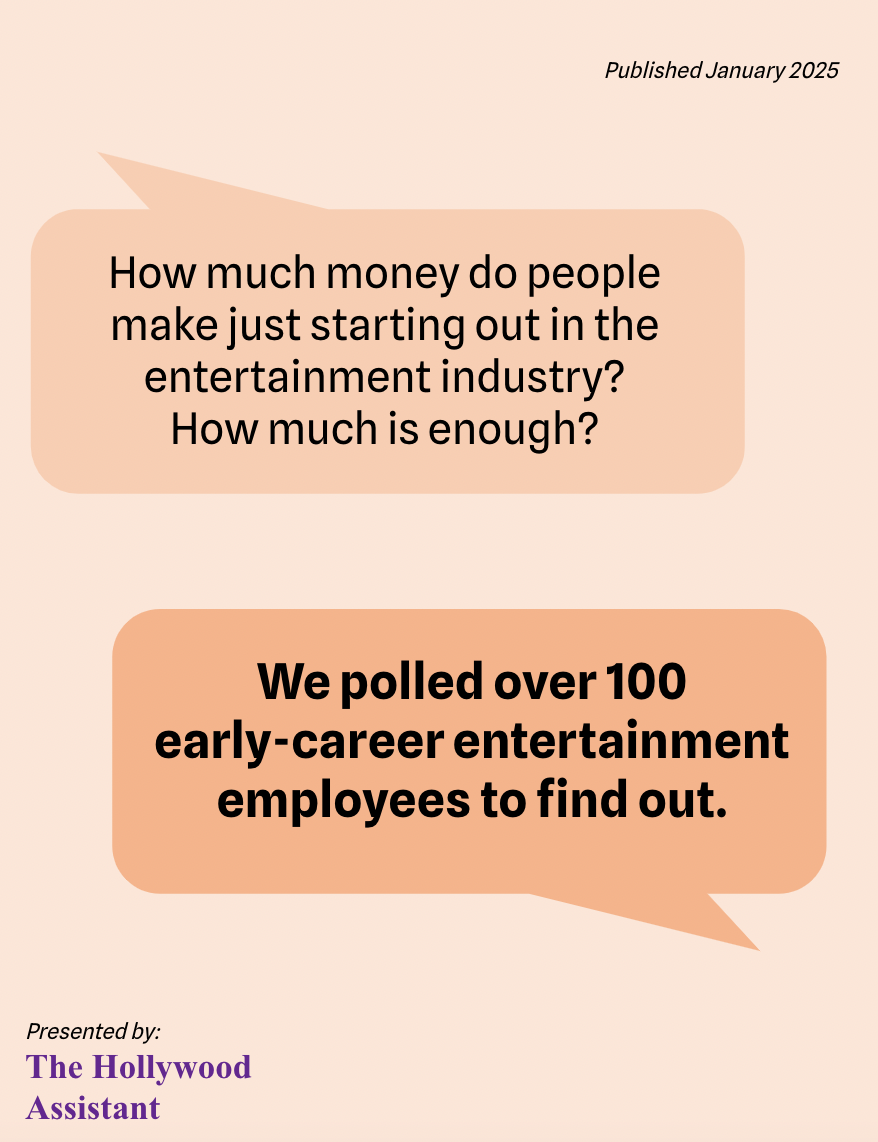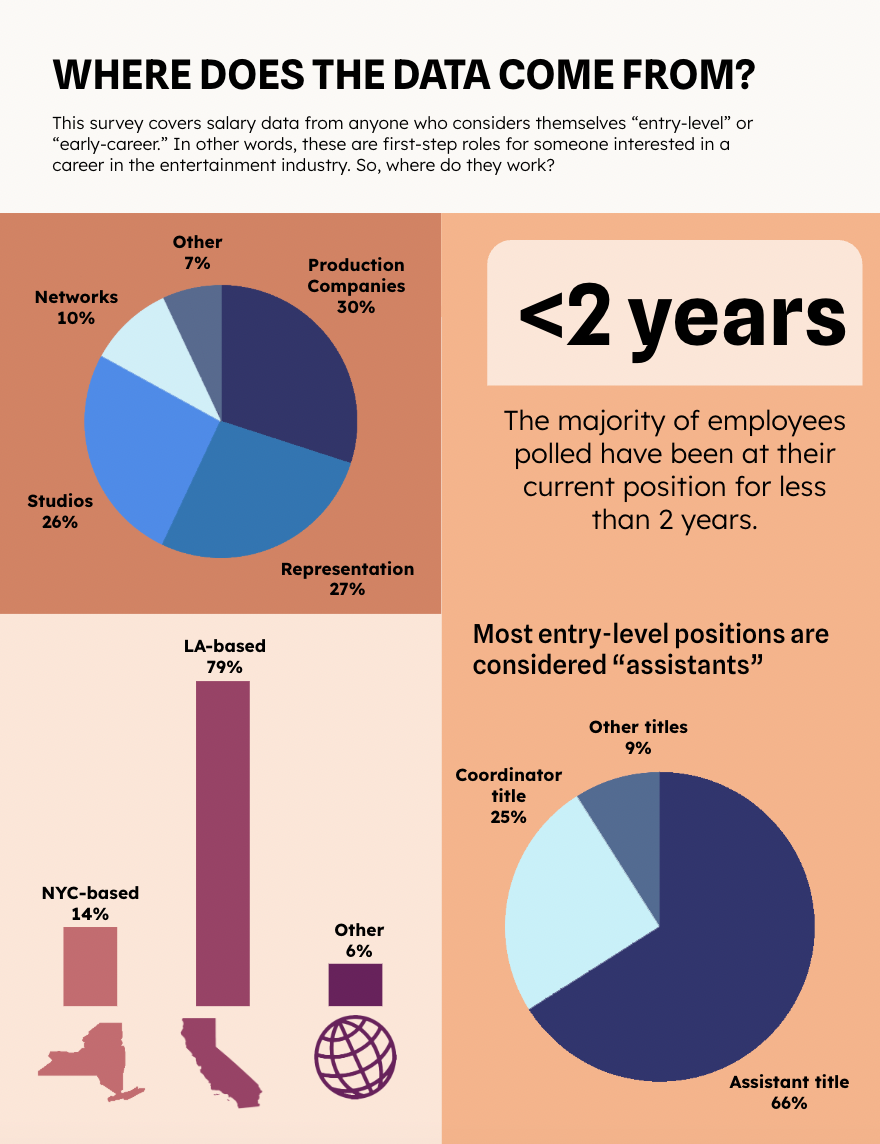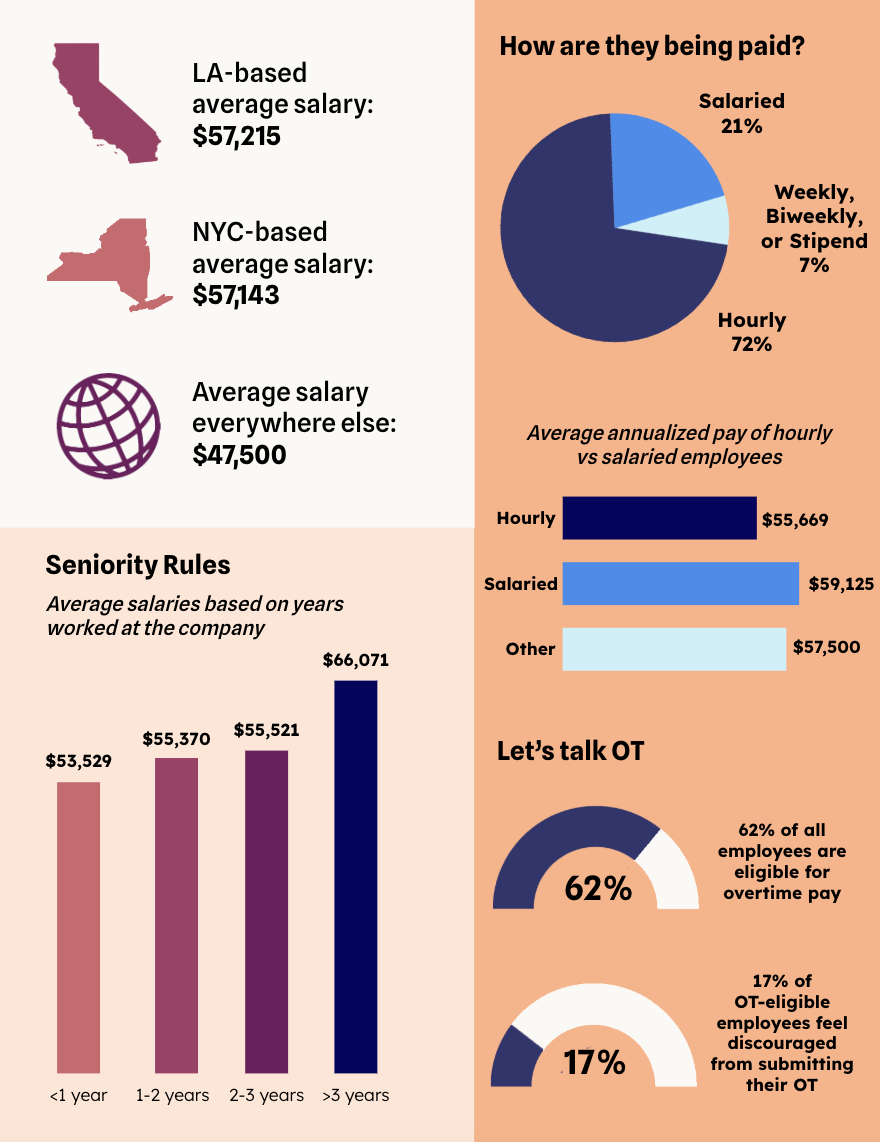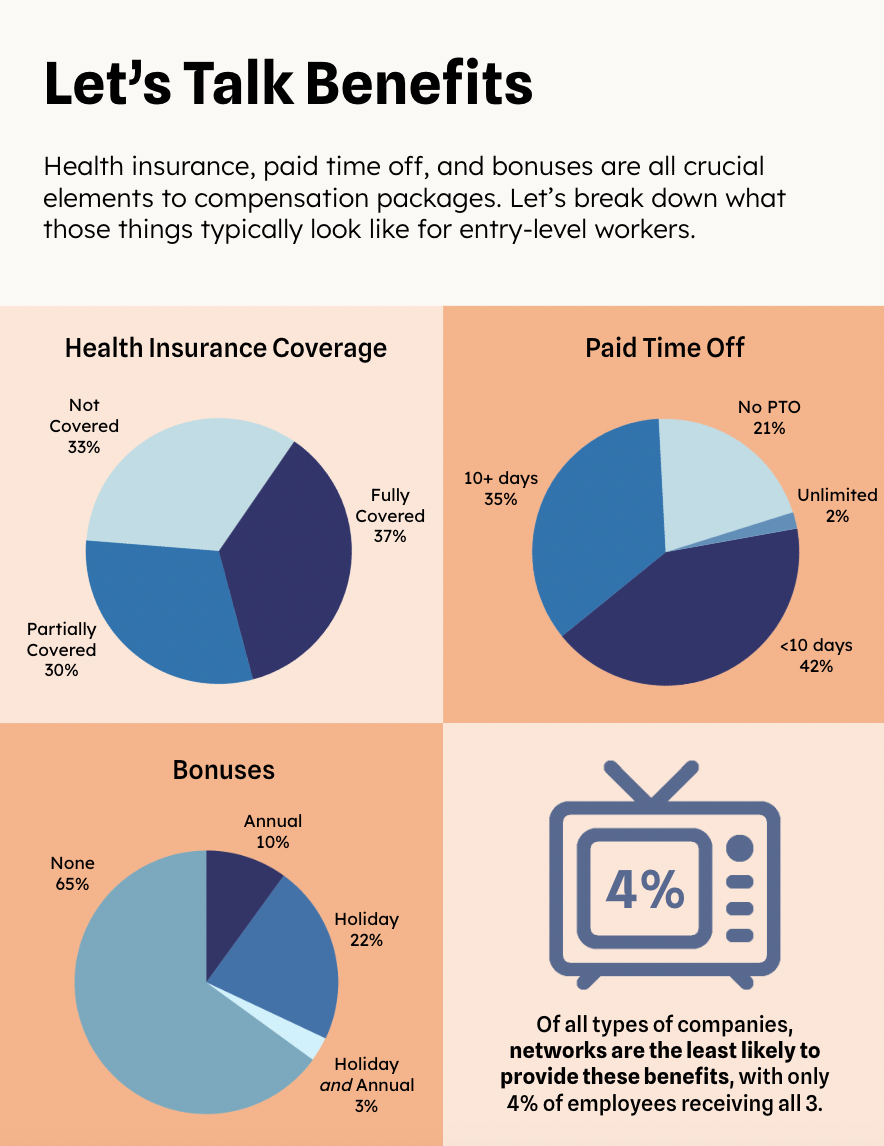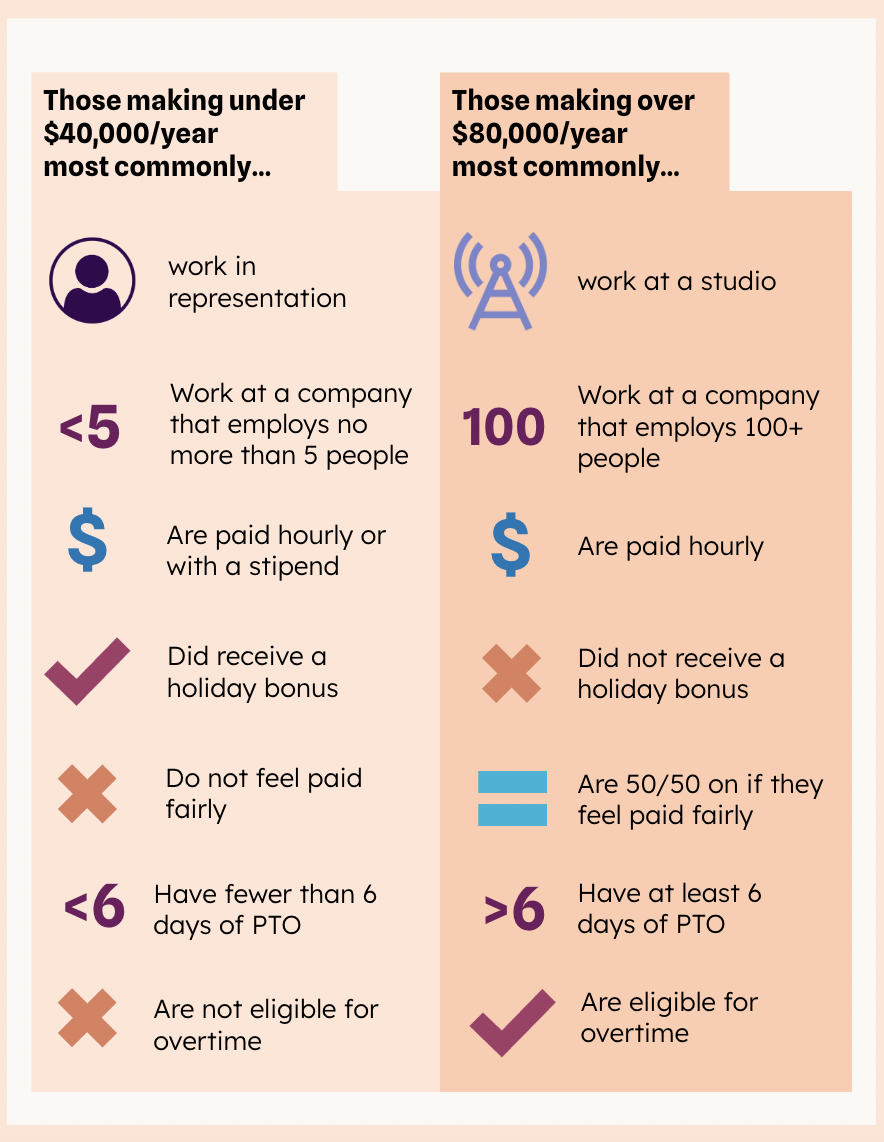Know Your Worth: How to Use our Salary Survey Data to Advocate for Better Pay
- Lucy Stover
- Feb 17
- 5 min read
Updated: Feb 19
By Lucy Stover, Talent Coordinator, MoreMedavoy Management & your co-Editor-in-Chief of THA
A companion piece to The Hollywood Assistant’s Salary Transparency Survey Results
Survey by Rhegan Graham, Production and Development Coordinator at Ish Entertainment
Whether we admit it or not, post-grad life quickly revolves around money: how much you’re offered, how much you deserve, and how much you advocate for.
Nowhere is that more true than in Hollywood, where our reputation for living on pennies is well-earned (ha). Bet you wanna throttle your friends in tech right about now…
You’re here for one of two reasons: either you want to ask your boss for a raise & don’t know how, or you don’t have a boss to ask yet & are trying to figure out if an assistant’s salary is even sustainable. Either way, this is for you.
Wage Transparency: Why it matters
At The Hollywood Assistant, we’re firm believers in wage transparency—openly discussing one’s salary to benefit everyone. It might feel awkward to talk about money, whether from embarrassment or fear of coming across as boastful, but here’s the reality: staying silent only helps the people who want to keep wages low.
By sharing salary information with trusted peers, you empower yourself and others to push for rightful compensation. No one will pity you—we’ve all been there. And no one will resent you, as long as you share with the intent to help, not brag.
Knowledge Is Power—If You Know How to Use It
As assistants, we’ve learned one thing: knowledge is leverage. But knowing something is only half the battle—you need to know how to apply it. That’s why we created our own damn survey.
Sure, there have been similar surveys with bigger sample sizes. But what is the point of statistics if they don’t teach you how to wield them? Just to make you feel terrible when you inevitably realize you’re underpaid? Screw that. You gave us the stats, now we’ll guide you on how to use them.
Take a deep breath. Grab a pen. Lock in.
How You Can Use This Data
How much do I make now?
Understand your own compensation. How much do you make every year? Is it hourly, weekly, or bi-weekly? Is that before or after taxes are taken out? Do you know?
If you don’t know, you’re not alone. Most of us weren’t taught financial literacy, so dissecting a pay stub might not come naturally. But now’s the time to figure it out—pull up your latest pay stub and check your total earnings for 2024.
We’d go through it step by step with you but, honestly, it’s still confusing for us, too. Instead, pitstop here for a how-to.
Reread your contract & recall what benefits you receive while you’re at it. Print it out or write everything down.
How does my wage compare?
Evaluate your own compensation against the data. The average annual pay was $56,525. Do you make more or less?
Go through the data and note where you stand. If you’re below average, don’t panic—but do take note.
Representation vs Everyone Else
At least that’s what it feels like, sometimes. Assistants at studios, networks, and production companies make over $10K more than those at representation firms.
Unfortunately, this is the norm historically & is unlikely to change overnight. But it’s worth discussing. Your supervisor’s potential counter: “That’s because typically representation assistants are green & studios/networks/pods assistants have already served their time and, thus, get paid more for the experience.”
Well, that’s not necessarily true. We know plenty of people who were hired green into studios & plenty of people who have been in representation for 2+ years, intend to stay, and still don’t make nearly as much money as their studio peers. It’s why those studio/network jobs are so coveted and competitive. Food for thought.
What else does the survey tell us?
Beyond the obvious because you all know how to read.
If you feel like you’re unfairly compensated, you’re not alone. 75% of your peers agree.
Clocking overtime is surprisingly less of an issue than we thought..?
Only 17% of eligible respondents felt discouraged from submitting overtime—which is great.
OT has long been a contentious issue with supervisors, and don’t get us started on “voluntary overtime,” a completely counterintuitive term. Everyone deserves to be paid for every minute worked. It’s the law.
Yet, the industry rarely reflects that. Glad to hear most of you feel comfortable logging OT—guess the rest of us need to buck up & hit submit. Maybe that’s the key to why we’re below the salary average. A theory is brewing…
Chappell Roan was right. Health insurance coverage is a huge issue and not only in the music business.
If you’re fresh out of school, you may not see this as a problem now. But when you turn 26 and realize prescriptions are hundreds of dollars out of pocket, you’ll thank us for calling attention to it now.
Let’s be loud & clear on this: all employees should receive full healthcare coverage. Moving on.
The next question you should be asking yourself: Does my boss know all of this?
Chances are, they don’t. If you asked them your salary right now, they probably couldn’t tell you. But they should know. So tell them.
Even if they don’t have the power to increase your pay directly, they can advocate for you to the decision-makers. Educating executives on industry-wide salary trends benefits everyone—not just you. You can’t force them to care about what the average assistant salary or # of PTO days are, but making them aware could impact the greater good.
Ok, so how do I get more money?
Well, you can’t just walk in and say, “My salary is below average,” and expect a raise. Statistics are a tool. But you need a whole toolbox, so to speak.
For more advice on how to have “The Talk” with your supervisor, read our founder Cathy Campo’s guide Dear Hollywood Assistant, I Need More Money next.
And if you don’t have a boss yet…
As you hunt for your first (or next) job in the business, this data can also help you identify companies or roles that consistently offer the best benefits, spot trends in compensation, and understand what’s considered standard.
Even though this industry often feels like a “take it or leave it” situation for new hires, that doesn’t mean you shouldn’t negotiate. This data arms you with the information that can help you negotiate when you finally earn an offer–an opportunity you should never pass up!!
Always. Ask. For. More. The worst thing they’re gonna say is no and meet you halfway. You still win & they’re impressed that you stuck up for yourself.
The Bottom Line
Yes, you can afford to be an assistant in LA or NY—with some financial awareness, budgeting, and confidence in these tough conversations. Whether you're negotiating a new role, assessing your current compensation, or striving to create a more equitable industry, the first step is understanding the playing field. So, take this information, use it, & pass it on.

